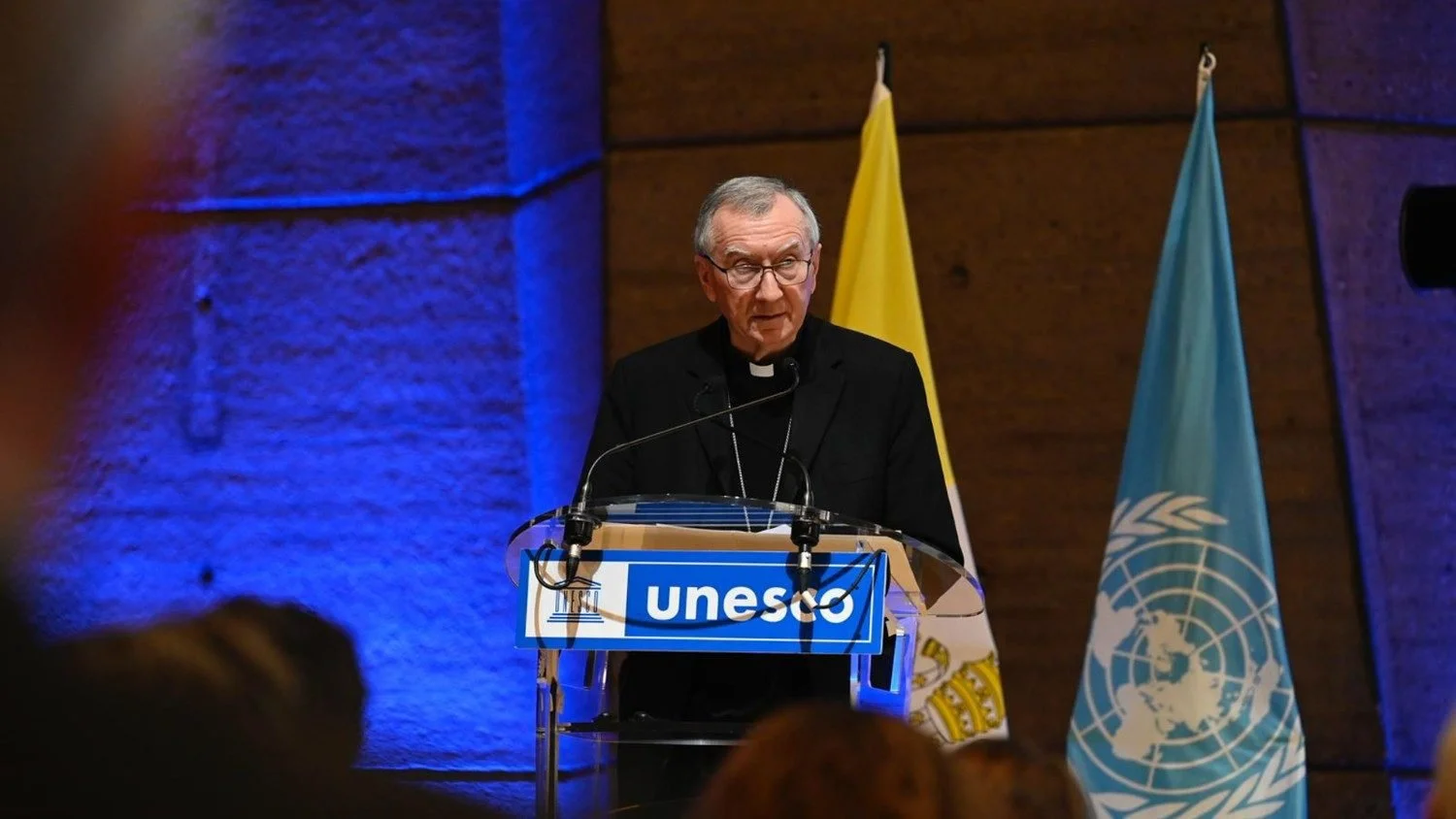Cardinal Parolin at Caritas conference: 'Much still to be done to empower women'
The Full Face of Humanity: Women in leadership for a just society (Caritas Internationalis)
As a two-day Caritas Internationalis conference gets underway in Paris, Cardinal Secretary of State Pietro Parolin and various keynote speakers highlight the harsh realities and injustices many women face around the world, and pledge to work together to create a more just and equal society for all.
By Francesca Merlo - Paris, France
115 million girls are out of school. Less than 3% of humanitarian funding goes to organisations working on women empowerment. Only 5% of the world’s CEOs are women.
These are some of the staggering figures highlighted by the speakers during the first day of the conference “The Full Face of Humanity: Women in Leadership for a just society”, organised by the Permanent Observer Mission of the Holy See to UNESCO and Caritas Internationalis, under the patronage of UNESCO.
Goals of Paris conference
The conference, taking place on 27-28 October, has three main aims, as stressed in opening remarks of the conference on Thursday in Paris' UNESCO building.
These include: to explore the challenges for women at all levels of society; to focus on the barriers that prevent women from accessing leadership and decision-making positions; and to propose concrete strategies on how to contribute to eliminating these barriers.
Support of Pope Francis for women worldwide
Representing the Holy See, Cardinal Secretary of State Pietro Parolin offered a keynote address and spoke about the role of education, and the values of femininity as a gift for humanity.
In this regard, the Cardinal noted that educational disparities are “often linked to income, race and various situations of vulnerability that still make many girls and young women marginalised individuals."
He stressed that without the right to education, any discussion on the promotion of women “risks being an empty exercise in rhetoric”.
Considering women from the point of view of education, he said, means emphasising the fundamental importance of the processes of human, spiritual, intellectual and professional growth that enable them to insert themselves in society on a par with men.
Moreover, continued Cardinal Parolin, "it is on these processes that States should have the courage to invest, thus reversing the embarrassing and asymmetrical relationship between public spending on education and the funds allocated to armaments."
He highlighted how true this is today, in a time in which education is "at the mercy of a profound crisis with an uncertain future, exacerbated by the devastating consequences of the Covid-19 pandemic and an extremely dangerous geopolitical scenario, where too many girls and women continue to pay the price."
Cardinal Parolin also used the time to thank, on behalf of the Holy Father, the dedication of so many educators and workers present in the remotest corners of the earth: "most of whom are women, both religious and lay."
The Vatican's Secretary of State concluded by recalling that "although reflection on the advancement of women has contributed to great successes, much remains to be done."
Women: penalised by discrimination
Also representing the Holy See was Msgr Eric Soviguidi, Permanent Observer of the the Holy See to UNESCO. He opened his speech by highlighting how women are penalised by discrimination, a thought that was reiterated shortly after by Ambassador Nancy Ovelar de Gorostiaga, Permanent Delegate of Paraguay to UNESCO.
She warned that we all suffer the consequences of this inequality and discrimination, which touches women, indigenous peoples, migrants and refugees, and people with disabilities. The reality, stressed Ms. Ovelar de Gorostiaga, is that “opportunities for people in life depend on their gender, their race, their religion, and whether they have a disability”.
Women make up half of the world’s population, and “to throw away the potential of half of humanity is unfair and inhumane,” she said.
Women in Caritas
Caritas Internationalis Secretary General, Aloysius John, recognised the work that still needs to be done within Caritas to empower women.
Currently, 53% of Caritas staff consists of women alone, but “we also need to move a bit further, to enable women to take bigger positions in the confederation,” he noted.
Violence against women
Those attending the conference then heard some harrowing testimonies, in particular that of Jasvinder Sanghera, a survivor of a forced marriage…
This report was originally published on Vatican News website. Please click here to read the full text.

